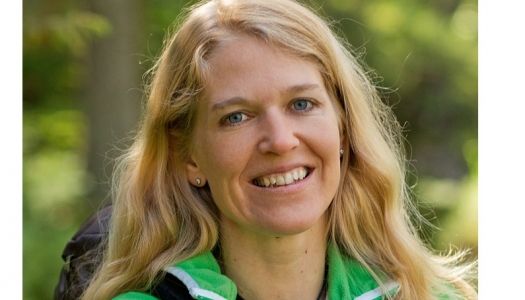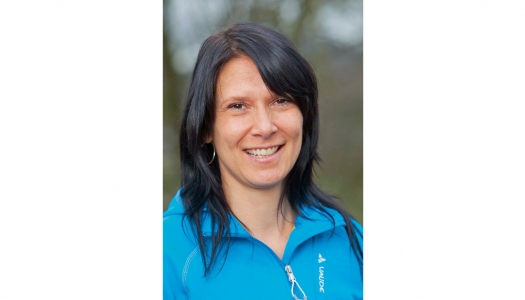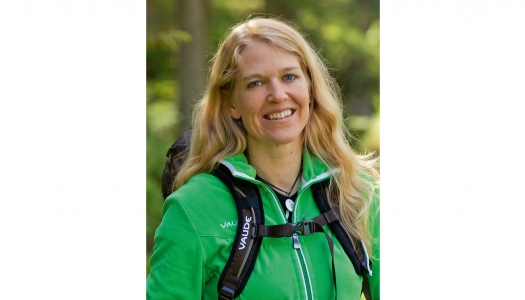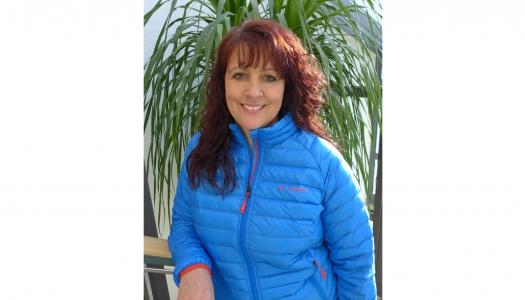
Our Sustainability Strategy
Integrated sustainability strategy based on our convictions
We are fortunate that much of our competition in the outdoor industry today is engaged in sustainability. Due to the following reasons why we see ourselves in a pioneering role:
- Our approach is holistic and highly integrated: there is not a single area or business decision made that is not related to sustainability – see „The VAUDE Ecosystem“.
- We use the strictest standards available for all sustainability issues, or define our own stricter standards, such as the bluesign® standard and Green Shape.
- We promote sustainability issues even when there is no pressure from the outside, for example from NGOs’ environmental media or campaigns.
- Awards and prizes from independent organizations confirm our pioneering role in sustainability – see Awards and prizes.
VAUDE as a driving force for sustainability
We are delighted that many of our competitors are also involved because important steps are only possible through industry involvement. Our sustainability management system is special because we not only seek out individual aspects for strong communication, we also work comprehensively with a deeply integrated system. Our activities cover a very broad range – here are some examples:
- Our early commitment (since 2001) for organic textile standard bluesign® and the widespread use of standards in all product categories, whether clothing, backpacks, tents and sleeping bags – see bluesign®: the world’s strictest standard and bluesign® materials.
- Our approach to biodiversity as the first medium-sized company based on the model project "Business & Biodiversity" at our headquarters in Obereisenbach – see why biodiversity is important to us and Pioneer in the Biodiversity Check.
- EMAS certification at the company headquarters. As the first company in the Outdoor branch to become certified, we began in 2008 and have been certified annually since then – see EMAS Index.
- Our successful mobility concept with a pool of eBikes, bike commute support program, carpool, company shuttle bus, public transport, coupled with an incentive system (Mobility Lotto) – see 53,672 km by bike to work and Incentive Mobility Lotto.
- We are among the first companies in the industry to create a complete carbon footprint (for our headquarters in Tettnang) and all unavoidable emissions are compensated for (since 2011) see Climate neutral at our Tettnang site.
- Our high commitment for a good work-life balance with the child care center founded in 2001 and the parallel certification by the audit "Hertie Beruf und Familie" – see Family in the best sense and VAUDE child care center - our company kindergarten.
- Our participation in feasibility tests for the implementation of the comprehensive product life cycle assessment process at the international level, the Higg-index and its incipient integration in product development – see Higg Index.
- Our high commitment to transparency. We are the first outdoor brand in Europe to publish the comprehensive GRI report – see GRI Index.
- Our comprehensive integration of sustainability into corporate strategy, which leads to a broad commitment at all levels of the company.
- Our strong commitment to industry solutions and comprehensive standards, for example by our employees at the German Sustainability Code, management of "Sustainability Working Group" of the EOG, participation in the "Advisory Panel" for Sustainability of the EOG, Executive Director Antje von Dewitz as an ambassador of the TEEB study, membership of the board EOCA, membership in the Association for sustainable textiles, publicizing an Economy for the Common Good report.
- Our exemplary contribution to raising awareness and training: both in sustainability training for European retailers and sales staff in stores as well as in creating an integrated pollutant management system at our producers.
- Our commitment for the end of the product life cycle: our cooperation with FairWertung, our repair department and with eBay – see Waste disposal.

|
»We want to be a sustainable company through and through. We are coming a little closer to this vision every year.« Antje von Dewitz, CEO
|
Sustainability at VAUDE: a mandate for all employees

|
»My work as a production manager includes the fact that I feel responsible for fair working conditions.« Susanne Medesi, Purchasing Manager/Production Management & CSR
|
Sustainability objectives have been integrated into the company's goals for the last three years, and employee bonuses are partly dependent on the achievement of sustainability goals. In all divisions, it is considered important that knowledge about sustainability is not just for the experts.
The next goal is to fully integrate sustainability management controlling within the corporate controlling system. Sustainability is used for corporate management, and the evaluation indicators in this area will obtain a corresponding status.
Tools for constant improvement
Our VAUDE ecosystem, the EMAS and ISO14001 certifications and the GRI report standards help us holistically and systematically to identify, develop the environmental aspects of our business operations, evaluate how relevant these are and what influence they have, and decide how we can tackle challenges.
In 2014 we created and published a Common Good Balance Sheet in addition to our Sustainability Report. New inspiration for monitoring our business activities in light of sustainability arose out of these report standards.

|
»With the common good balance sheet, we want to contribute to a paradigm shift toward good business.« Antje von Dewitz, CEO
|
VAUDE as a driving force for sustainability
Supply chain challenge

|
»Our impact on the environment and harmful substance management in the supply chain is limited. But with our bluesign® partnership, we can still achieve a lot. « Bettina Roth, Head of Quality Mangement
|
Collaborations with external partners such as the "Fair Wear Foundation" (FWF) and bluesign® help us to meet our own demands. The most important further development steps for the supply chain will be for us in the next years the creating of an environmental management system with focus on waste water management, increasing transparency of our supply chain and the maintenance of the audit rate with the FWF.
Economic factors of sustainability
Economics is another issue bringing sustainability into focus. The outdoor industry has been growing at a very minimal level for some years, and has become a highly competitive market. For us as a family business in an industry that is dominated by ever larger and larger companies backed by strong financial investors, sustainability is a means for securing economic independence with careful planning and the use of alternative financing options – see Sustainable business is worthwhile.
Data availability and software systems
The key to a successful sustainability management system is the availability of knowledge and data on one’s own sustainability performance. In order to increase our efficiency and control it even more precisely, the challenge will lie in the continued development of our IT landscape over the coming years. This includes, for example, the switch to a new ERP system and the introduction of corporate management software that integrates sustainability management.
Sustainability as a social issue
Sustainability has become an important social issue in recent years. Many customers seek out specific information before they decide to buy a product. From time to time we receive critical inquiries about our products. Our aim is to meet this rising awareness with comprehensive reporting.
The issue is heating up in politics as well. Although the Bündnis für nachhaltige Textilien (Partnership for Sustainable Textiles) hasn’t been able to meet all expectations in its first steps, there is a growing awareness of the problem and legal regulations are expected in the future.
All these developments are cause for us to strengthen our strategy and double down on our commitment and efforts.
| GRI: | G4-1 |




